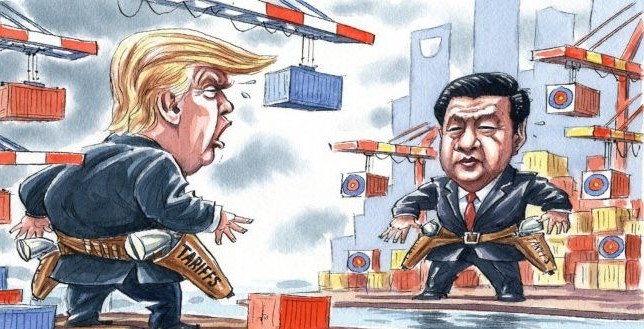Trade as an activity has stood the test of time. From the barter system to stock exchanges and cryptocurrency, business has enabled communities and corporations to quench their insatiable need for wealth creation and expansion. Therefore, if covenants exist so does conflict. China was among the first countries in world to participate in a proper trade war - the opium war. The United States of America is well known for its unflinching desire to pursue unilateral politics. Thus, when these two nations decided to lock horns in a battle with steel, aluminium and tariffs instead of arms and ammunition, it became an insurmountable task to resist it.

In an attempt to curb the huge trade deficit with the People's Republic of China, the United States of America began what was to be known as the 'US-China trade war'. It is an ongoing tussle between the aforementioned nations in a struggle for power, relying majorly on finance as its pillar of support.
However, there are a few potential benefits of this. Most importantly, this can bring an end to America's hegemony. There may no longer be a monopolisation of international trade, which is highly beneficial for developing countries. A plethora of opportunities would set the stage for the less developed countries to expand and bolster their economies. Pluralism and multilateralism is now the potential tomorrow.
Every coin has two sides to it. Due to the ongoing trade war, there has been a rapid and steady decline in bilateral trade between the USA and China. A sharp decrease in revenue coupled with inflation has damaged the American economy. Most importantly, the citizens are forced to bear the brunt of such aggressive policies. These abrasive decisions that entail imposition of tariffs could prove to be detrimental for the entire global community as they compromise the growth of the global economy.
Force is said to be the ultimate sanction behind law. But what is the legal status of the US-China trade war? International law is of the utmost importance and it is imperative that even in such exchanges, international law is not violated. If a country has discriminated between its trading partners, it is regarded as a gross violation of international law. In addition to this, the general agreement on tariffs and trade has clearly specified the provision under which an emergency in international relations can be declared. Yet, the rules have been broken again. Although the World Trade Organization believes in settling the dispute amicably, it is preposterous to take the course of mediation when both sides are refusing to back down.
India should consider this to be a golden opportunity and accordingly take advantage of the situation. If India aspires to bring about more Foreign Direct Investmest, filling the supply gaps could enhance india's prospects. India also earned a over $700 million due to additional exports to the US in 2019. Therefore, to make hay while the sun shines is the need of the hour.